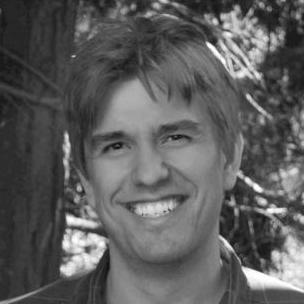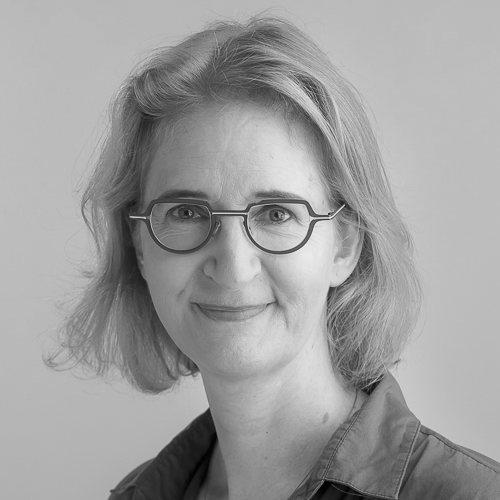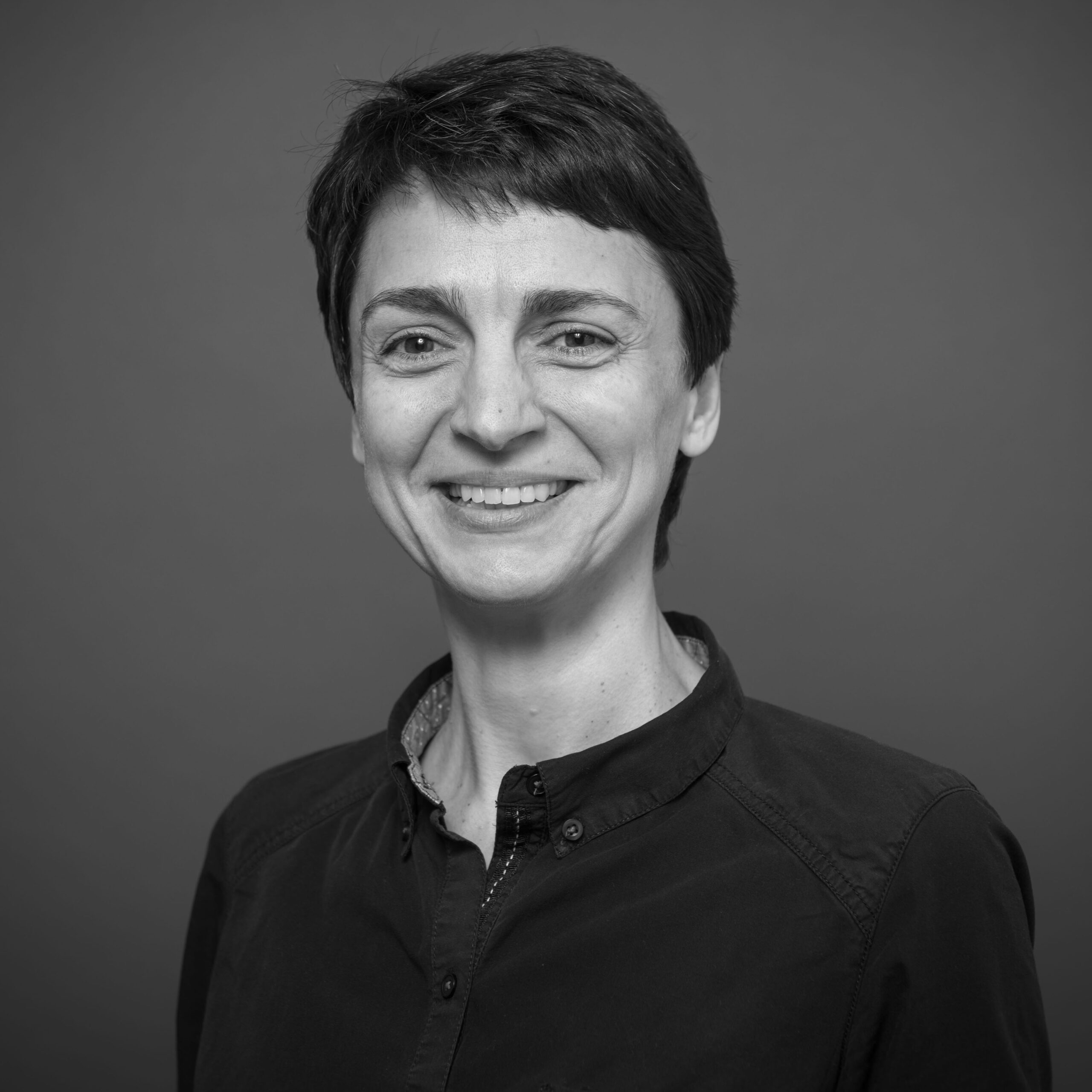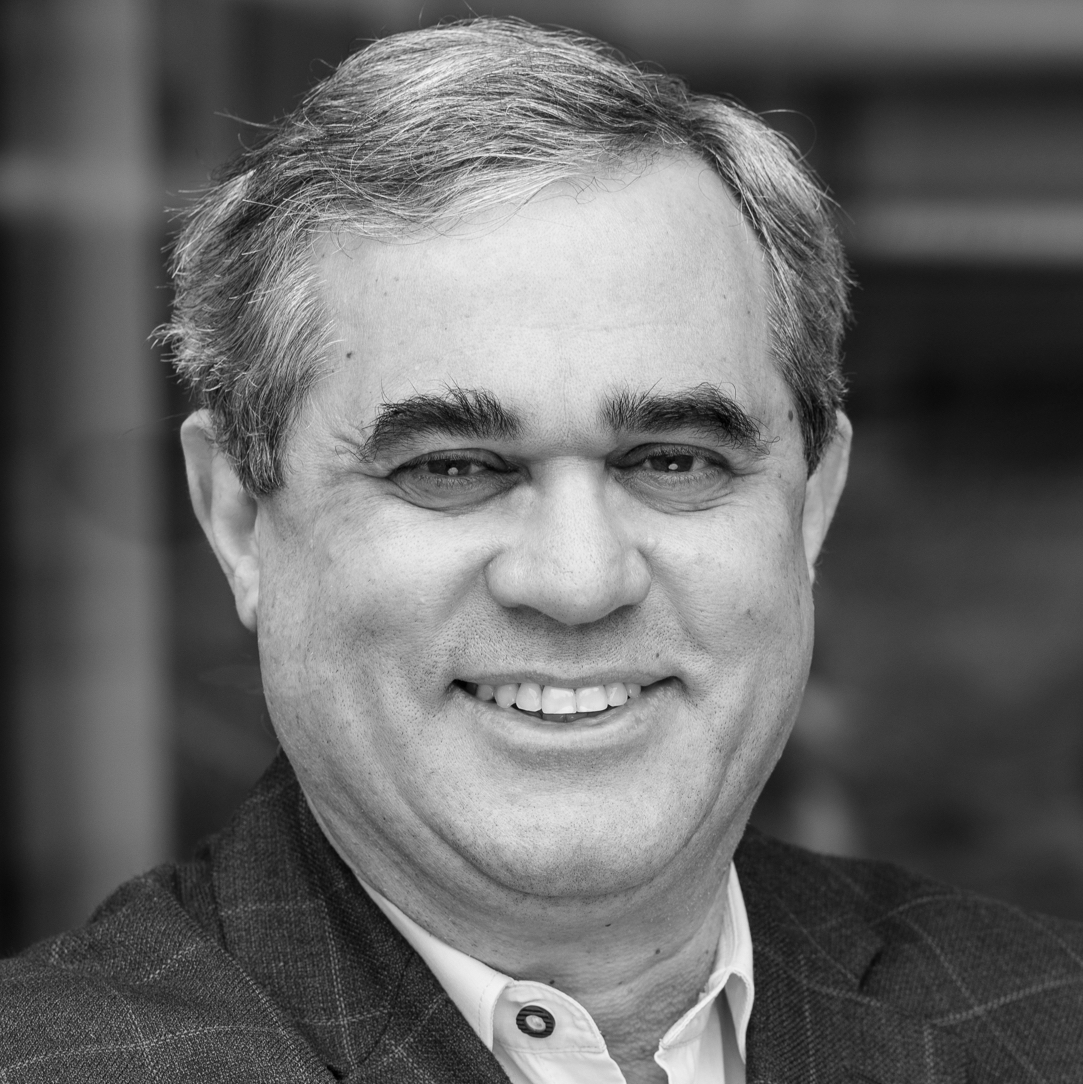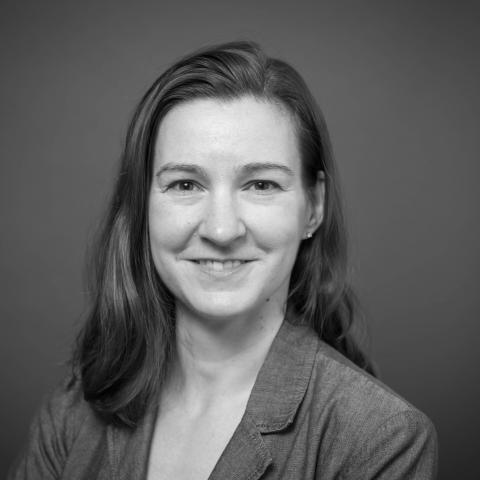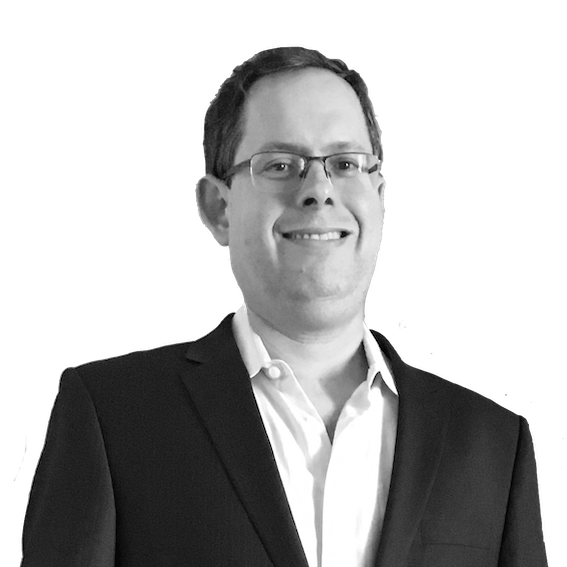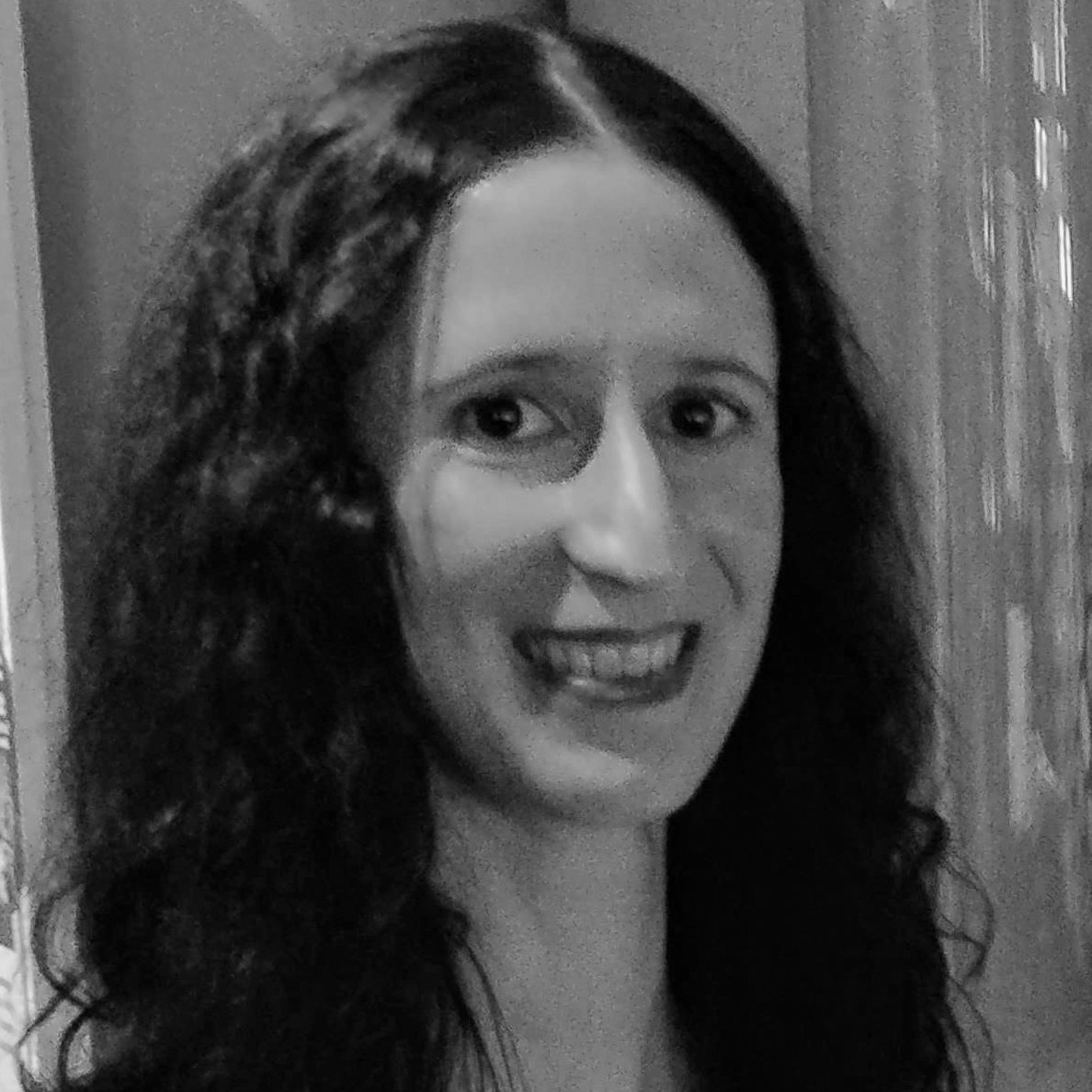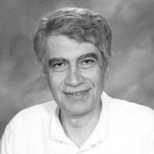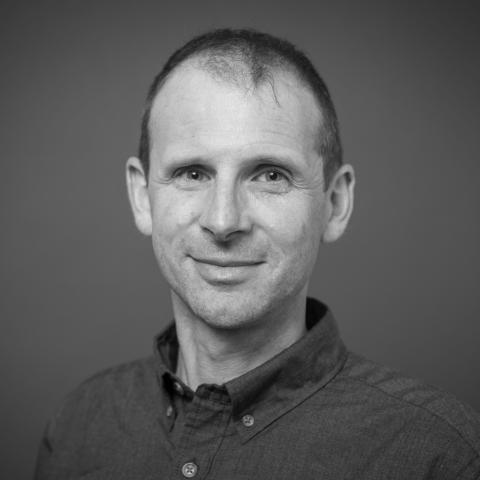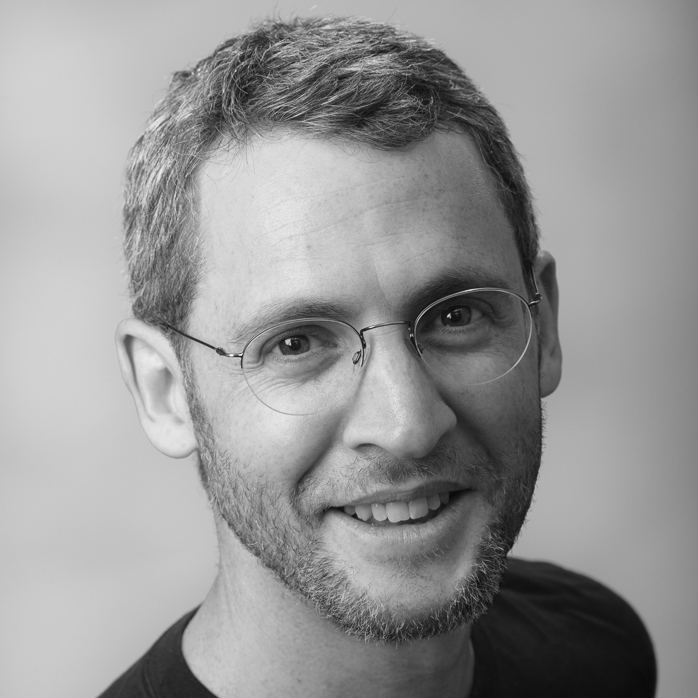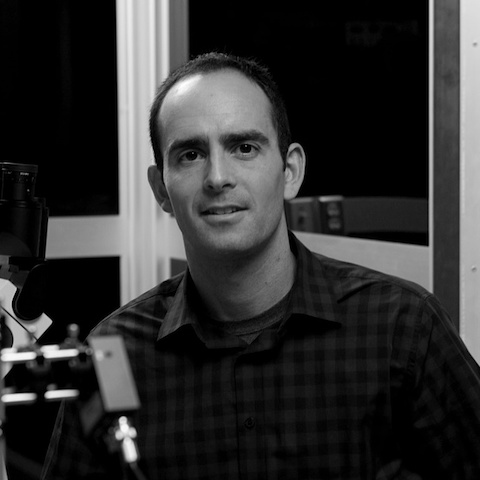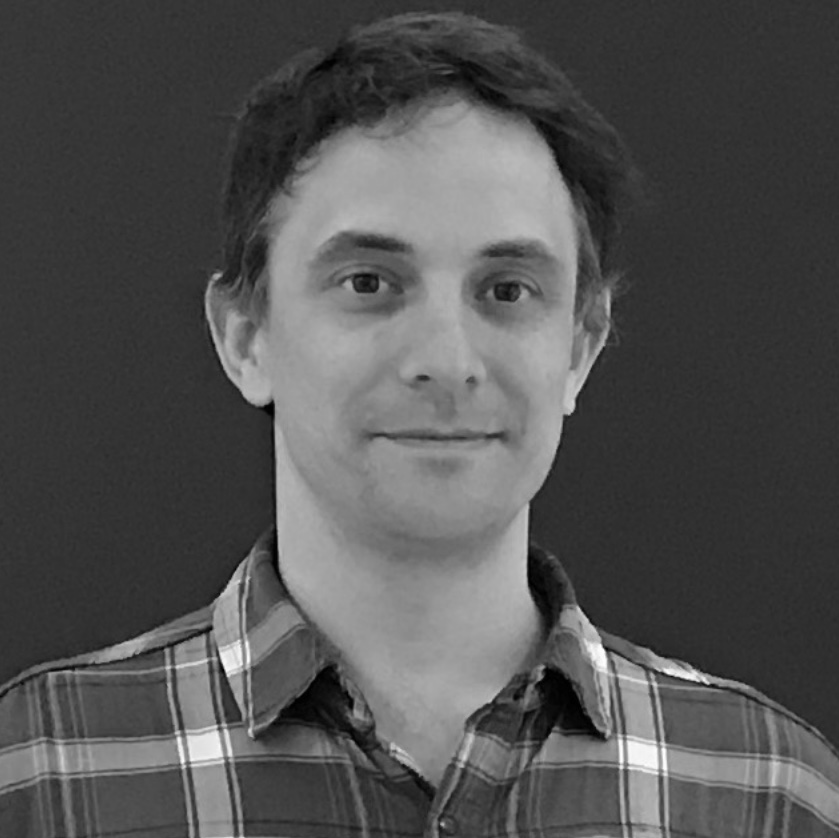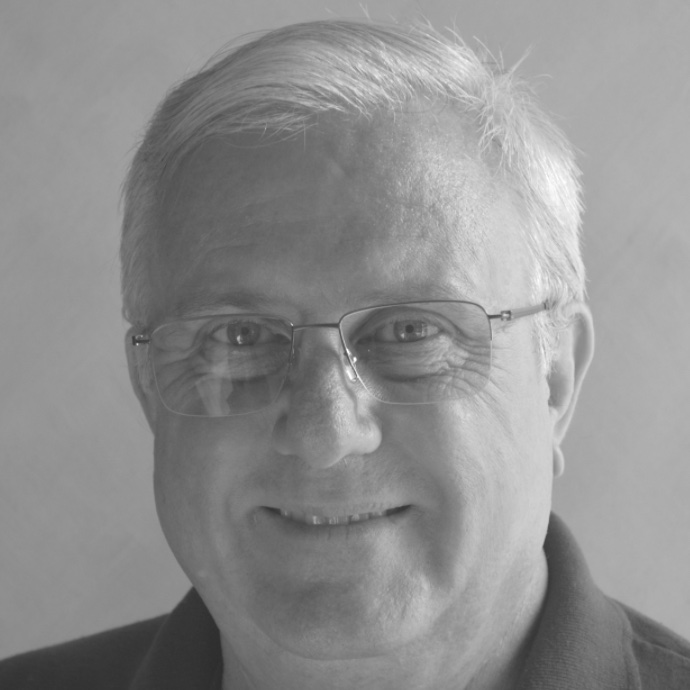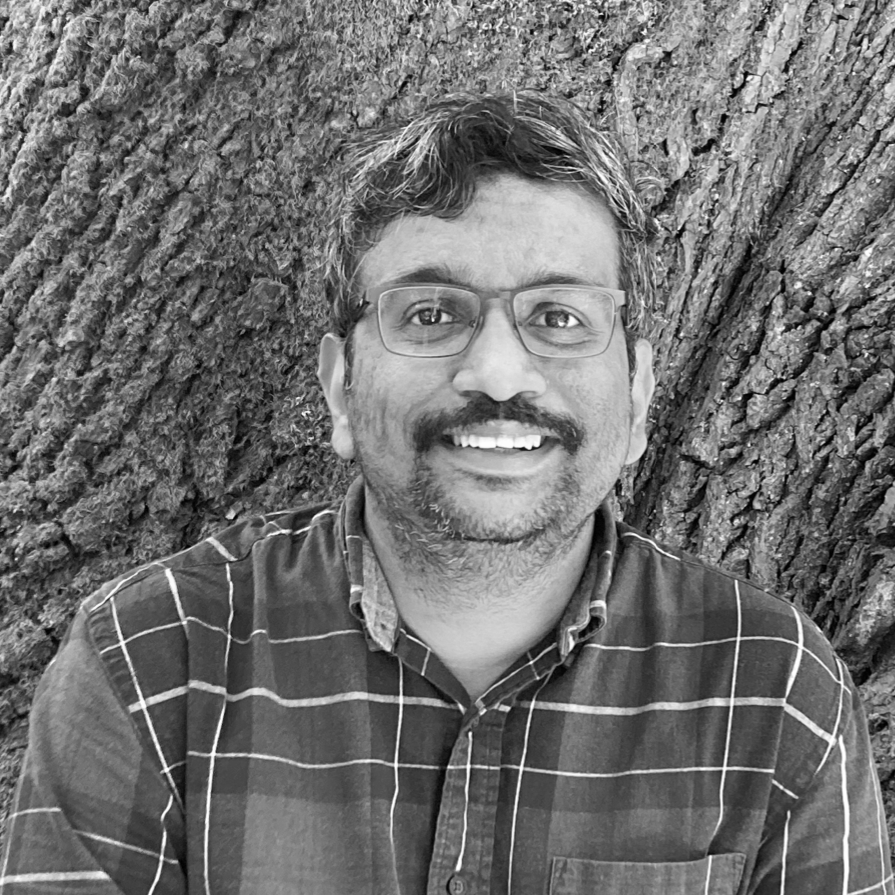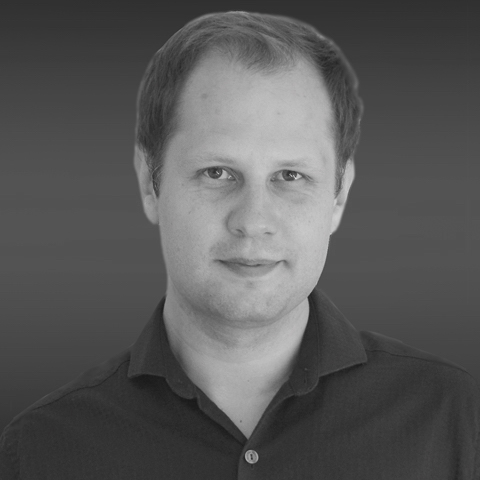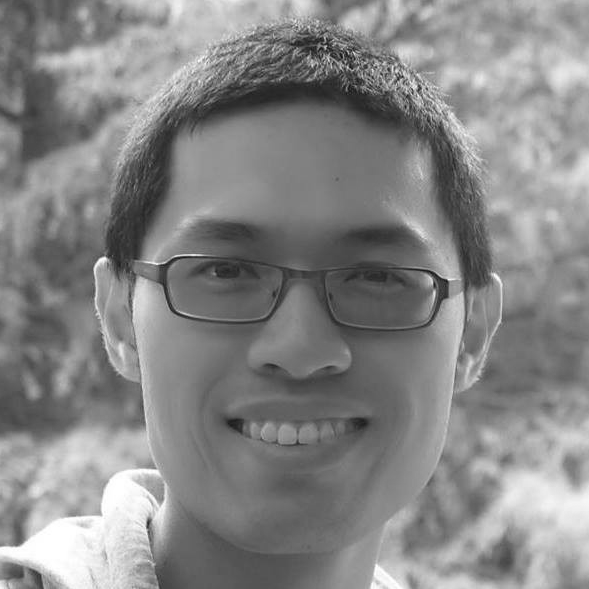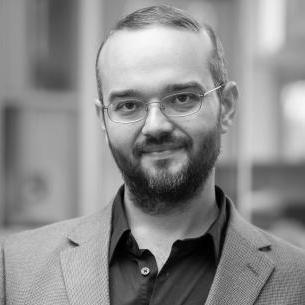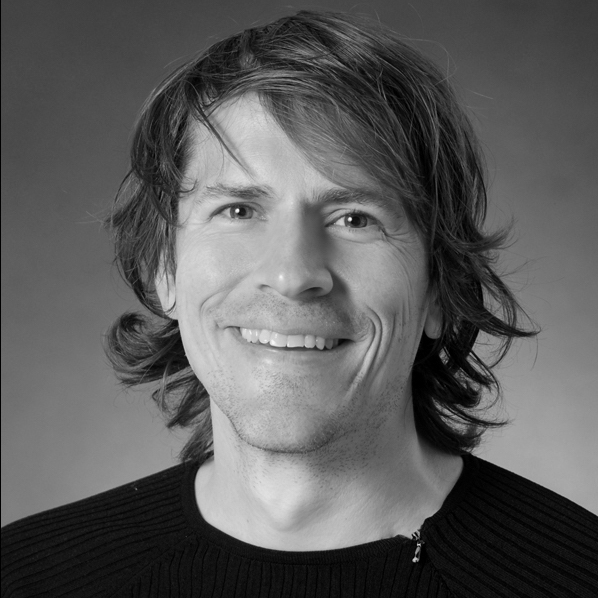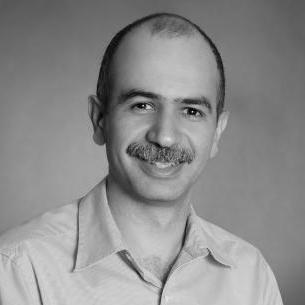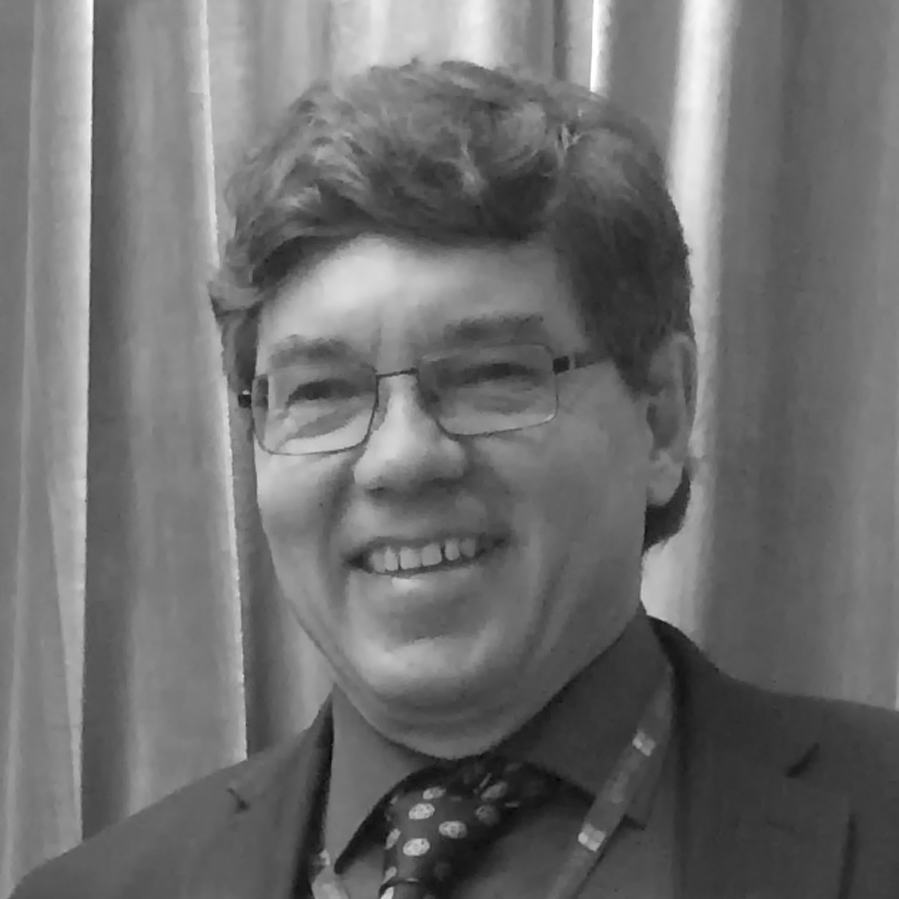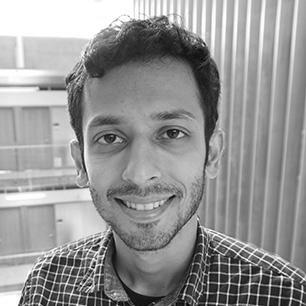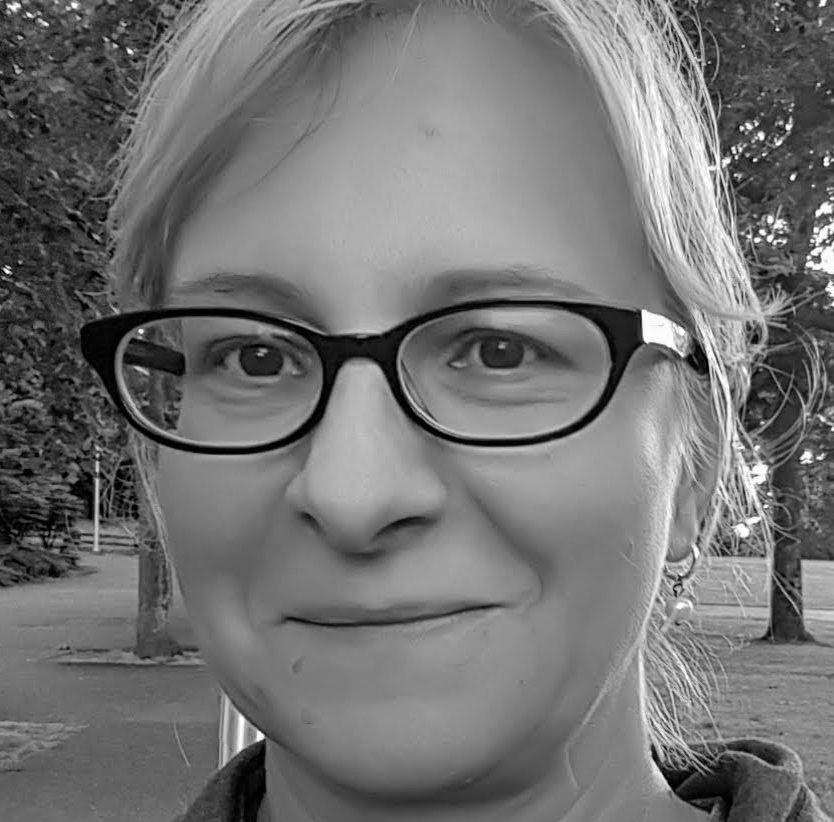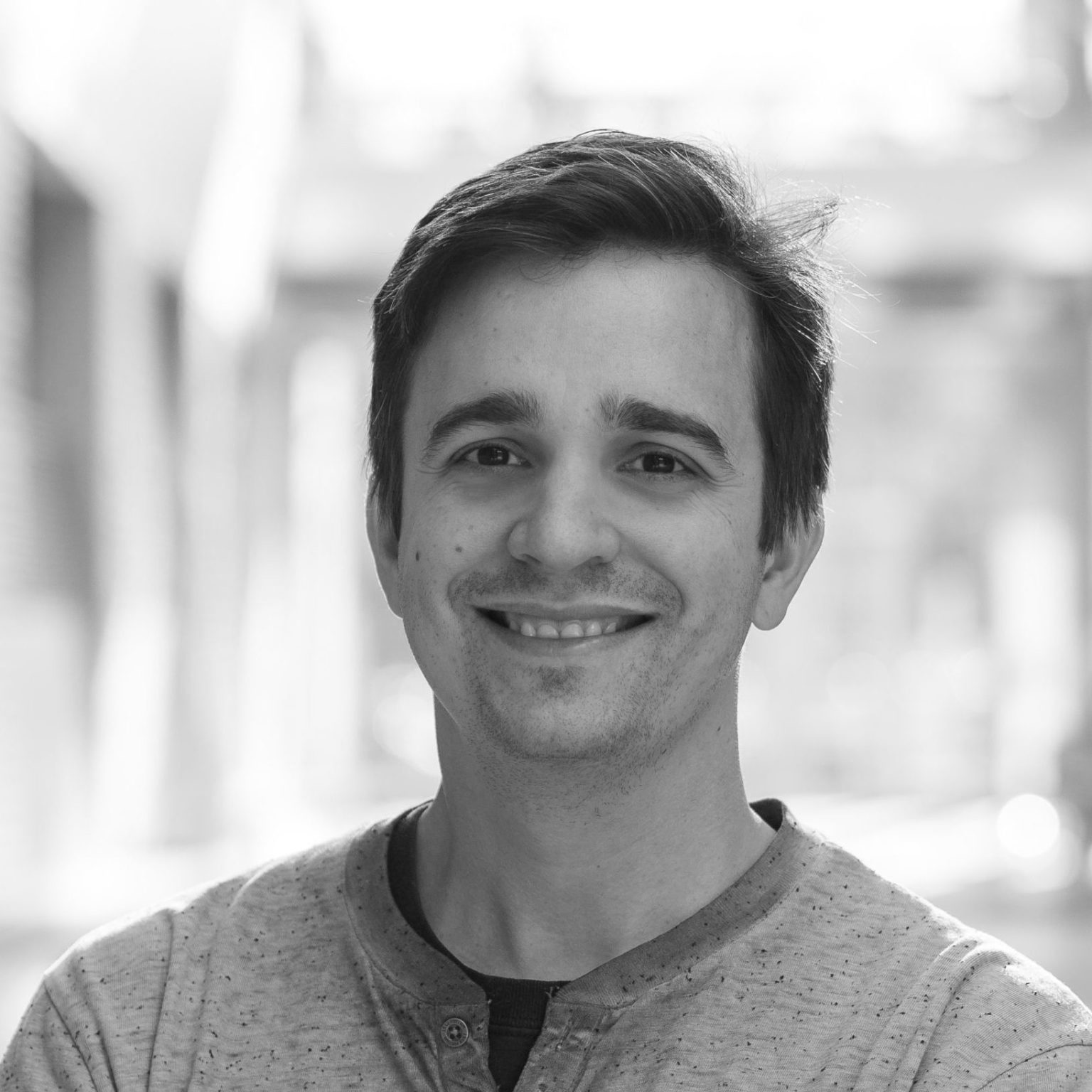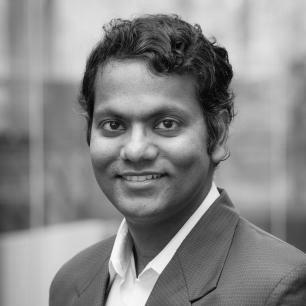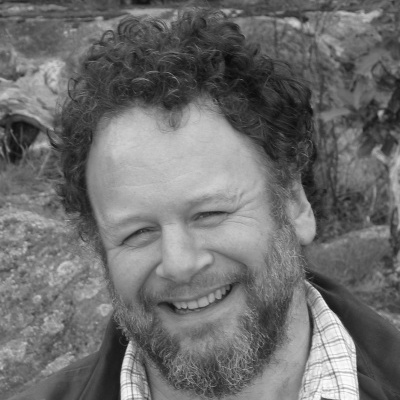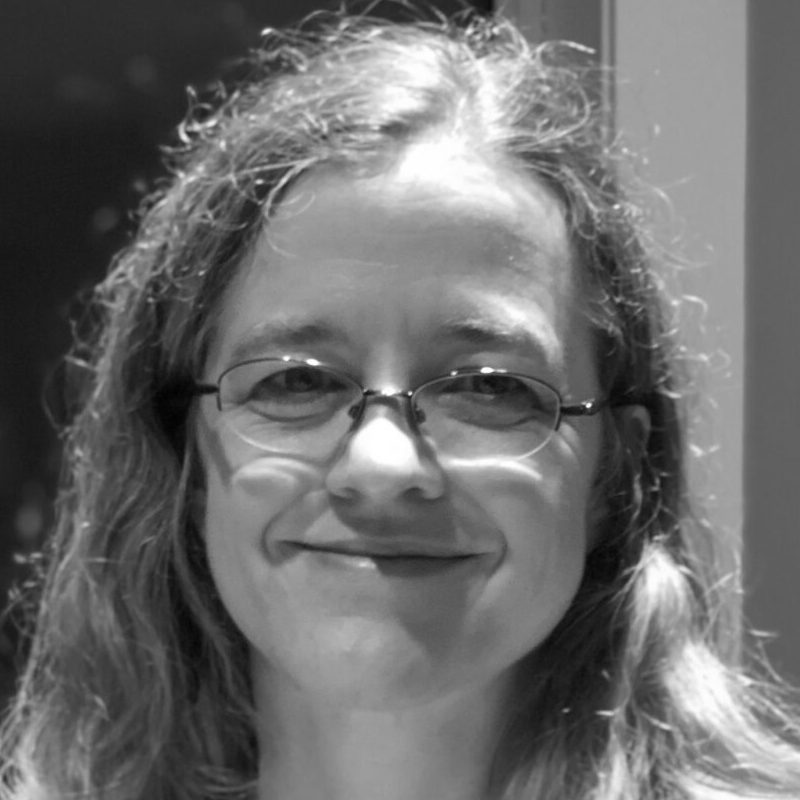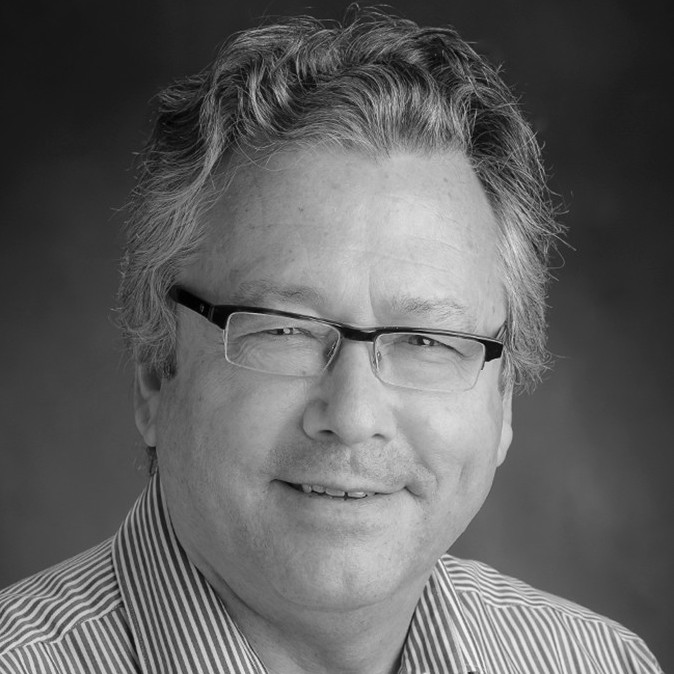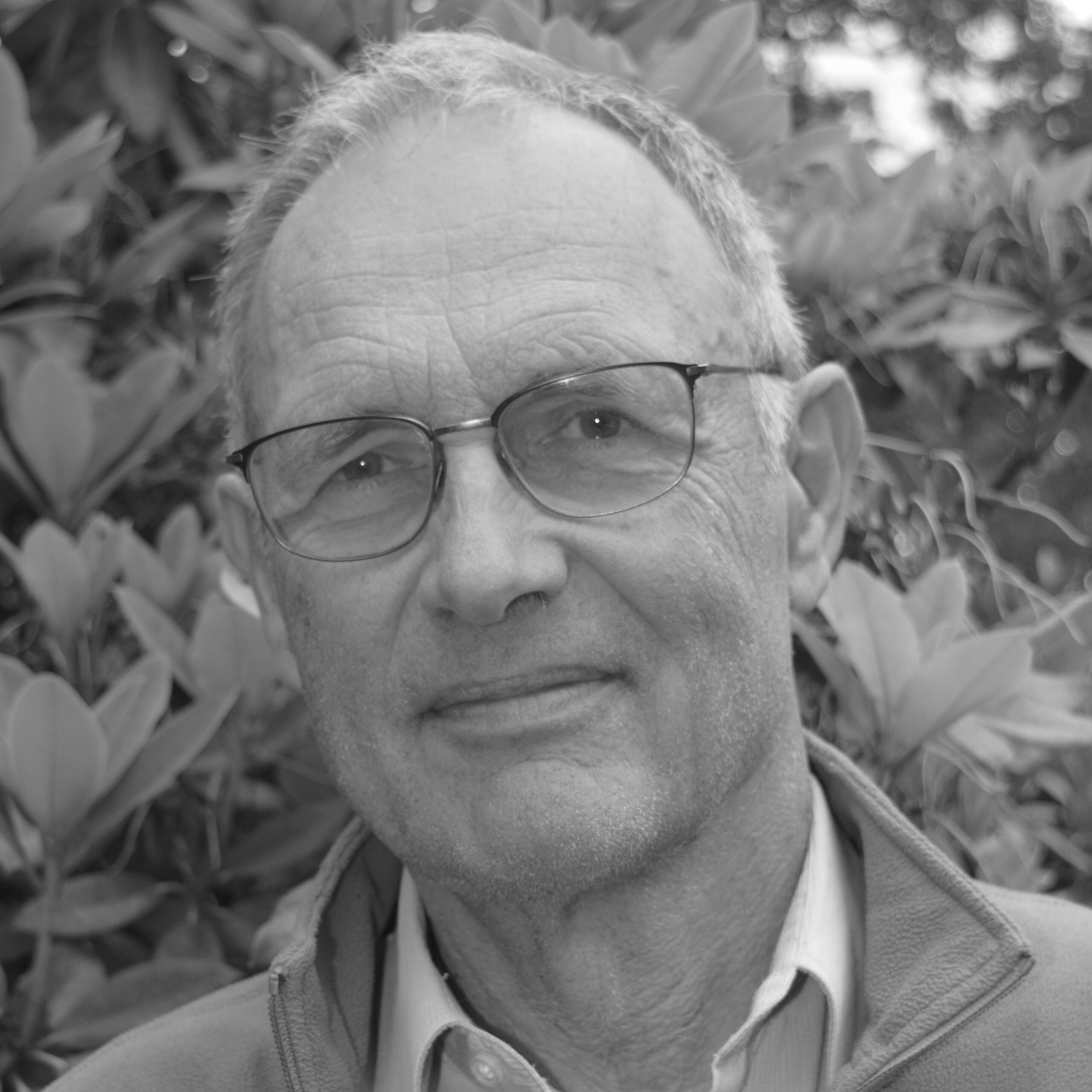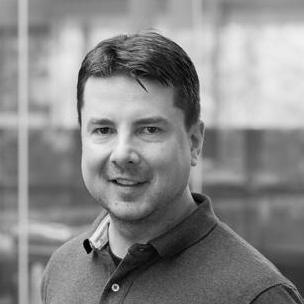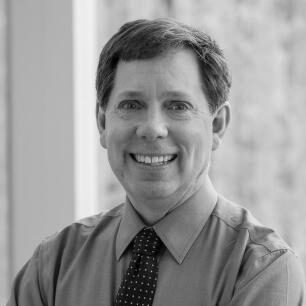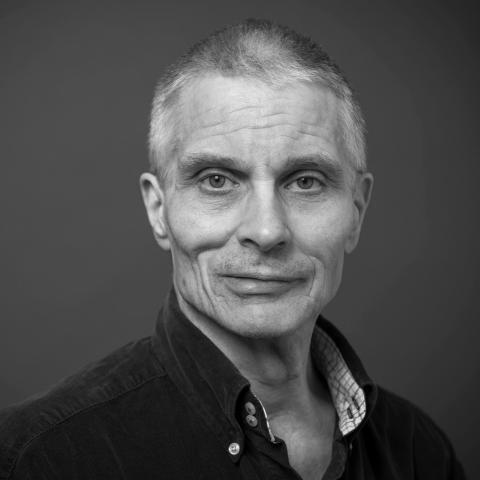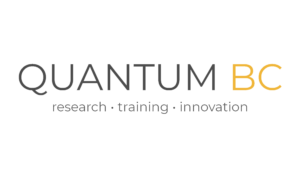PEOPLE
The people listed below reflect the Quantum Computing research community within universities and research institutes across British Columbia in Canada.
Tor Aamodt
Tor Aamodt is a Professor in the Department of Electrical and Computer Engineering at the University of British Columbia where he has been a faculty member since 2006. His current research focuses on the architecture of general purpose GPUs and energy efficient computing. Most recently his group has been exploring how to more efficiently train deep neural networks and exploring how to improve graphics processor unit (GPU) architectures for graphics and computing.
Tor Aamodt
Professor
Tor Aamodt is a Professor in the Department of Electrical...
Daria Ahrensmeier
Position: Lecturer
Categories: Graduate Research Training Program, K-12 Outreach and Diversity, SFU, Undergraduate Training
Location: SFU
Daria obtained her PhD in theoretical physics from the University of Bielefeld, Germany, and started specializing in physics education and educational development while doing postdoctoral work in non-equilibrium quantum field theory and adiabatic quantum computing.
She (co-)created and taught lecture courses, labs, studio physics materials and labatorials for students in physics, engineering, mathematics and other programs at universities in Canada and Germany. As collaborator or co-PI on several Teaching and Learning Development Grants, she has studied the effectiveness of those instructional designs and shared the findings in publications and at conferences. As educational developer, Daria worked with over a hundred faculty members across SFU on curriculum review, program development, and teaching best practices, and collaborated on institution-wide teaching and learning initiatives.
Daria recently joined the Department of Physics at Simon Fraser University as Teaching Faculty Member and looks forward to further advancing physics and quantum education. For Quantum BC, she serves as the Chair of the Education Committee and has been collaborating on the development, implementation and assessment of workshops and courses. She is also the Chair of the Division of Physics Education (DPE) at CAP (Canadian Association of Physicists) and an Associate Editor for the Canadian Journal of Physics, and has helped set up the Quantum Algorithms Institute in BC.
Daria Ahrensmeier
Lecturer
Daria obtained her PhD in theoretical physics from the University...
Matt Amy
Position: Assistant Professor
Categories: Algorithms, Education, Fundamental Theory, Graduate Research Training Program, Institution, SFU, Software Engineering
Location: SFU
Matt Amy is an Assistant Professor in Computing Science at Simon Fraser University in Canada. He received his PhD in Computer Science from the University of Waterloo, after which he held an Atlantic Association for Research in Mathematical Sciences (AARMS) postdoctoral fellowship in Mathematics at Dalhousie University. Alongside his work in academia, he has spent time in the quantum software industry at Microsoft, Xanadu, and SoftwareQ, the latter at which he developed the industry-leading quantum compiler, staq, and now serves as head of quantum software. His current research aims at developing tools for formally specifying and reasoning about quantum computation to increase the ease with which verifiably correct quantum programs can be written and compiled.
Matt Amy
Assistant Professor
Matt Amy is an Assistant Professor in Computing Science at...
Thomas Baker
Position: Assistant Professor
Categories: Algorithms, Applications, Fundamental Theory, Graduate Research Training Program, Spins in Si, Superconducting, UVic
Location: UVic
Thomas Baker is an Assistant Professor in the Department of Physics & Astronomy and also the Department of Chemistry at the University of Victoria in British Columbia, Canada. He earned a M.Sc. from California State University, Long Beach where he graduated on the Dean’s List of Scholars and Artists and held a graduate research fellowship. He earned a Ph.D. from the University of California, Irvine with the support of the Achievement Rewards for College Scientists (ARCS) fellowship before he was the Prized Postdoctoral Scholar in Quantum Sciences and Technology at Institut quantique at l’Université de Sherbrooke. He recently was a Fulbright U.S. Scholar at the University of York in the United Kingdom.
Thomas’s research interests are widespread in the field of quantum computing. He is interested in how to make quantum computers and design quantum materials for qubits and quantum error-correction. He also develops new algorithms for quantum chemistry on the quantum computer. Many times, numerical examples are produced in a custom-built tensor network library called DMRjulia, but other techniques are also used.
Thomas Baker
Assistant Professor
Thomas Baker is an Assistant Professor in the Department of...
Mona Berciu
Mona Berciu obtained her PhD from the University of Toronto, Canada in 1999. She joined UBC in 2002 and is a Professor in the Department of Physics and Astronomy. Her research interests focus on developing accurate variational approximations for answering key questions that arise in the study of strongly correlated systems: what are the characteristics of the quasiparticle that forms when a charge carrier becomes ”dressed” by a cloud of excitations such as phonons, magnons, etc.; what effective interactions arise between such quasiparticles through exchange of excitations between their clouds; and what is their combined influence on the properties of the host material. These types of calculations may benefit from the use of quantum computers for increasing their efficiency. Our results can also be used for the training of machine learning algorithms, whether classical or quantum based.
Mona Berciu
Professor
Mona Berciu obtained her PhD from the University of Toronto,...
Alexandre G. Brolo
Position: Professor
Categories: Graduate Research Training Program, Photonics, Quantum Hardware, UVic
Location: UVic
Dr. Alexandre G. Brolo is Professor of Chemistry at the University of Victoria in British Columbia, Canada. He obtained his M.Sc. from the University of Sao Paulo (Brazil)and his Ph.D. from the University of Waterloo (Canada) in 1998. Dr. Brolo’s research interests are on the fabrication of nanostructured metal surfaces; the investigation of their optical properties; and their application in single molecule spectroscopy. Dr. Brolo has participated as author/co-author iin about 180 peer-reviewed research papers, reviews and book chapters. He is well-known for his work on the development of new types of surface Plasmon resonance sensors and on the field of surface-enhanced spectroscopy, particularly on surface-enhanced Raman scattering (SERS). The Brolo group is investigating the generation of entangled photons from single molecule emissions that can be used for quantum information processes.
Alexandre G. Brolo
Professor
Dr. Alexandre G. Brolo is Professor of Chemistry at the...
Sarah Burke
Position: Associate Professor
Categories: Graduate Research Training Program, Photonics, Superconducting, UBC
Location: UBC
Sarah Burke is an Associate Professor in the Department of Physics and Astronomy at the University of British Columbia. She obtained her PhD from the University of McGill in 2009 and joined UBC in 2010. The principal aim of her research is to build an understanding of important electronic and optoelectronic processes in a wide range of materials from the atomic scale up. In particular, the role of interfaces in organic and nanoscale materials is often of crucial importance for applications oriented processes, yet is frequently not fully understood. Scanning probe microscopy offers the ability to investigate such interfaces at the atomic level. Dr. Burke’s research makes use of scanning probe microscopy (SPM) techniques including atomic force microscopy (AFM) and scanning tunnelling microscopy (STM) in ultrahigh vacuum (UHV) and at low temperatures (~4K). This clean, low-temperature environment allows the characterization of well defined systems, with sufficiently high energy resolution for most organic and nanoscale systems of interest, and with the level of stability required to achieve measurements on individual nanostructures.
Sarah Burke
Associate Professor
Sarah Burke is an Associate Professor in the Department of...
Lukas Chrostowski
Position: Professor
Categories: Graduate Research Training Program, K-12 Outreach and Diversity, Photonics, Quantum Hardware, UBC
Location: UBC
The most ambitious application for silicon photonics – Chrostowski’s expertise – is in quantum computing. Silicon photonic approaches offer the potential for scaling to millions of qubits owing to the small device size and wafer-scale manufacturing. Chrostowski’s research is focused on developing the ingredients necessary to build a scalable fault-tolerant QC, including designing novel nanophotonic components for quantum information processing (lasers, single photon sources and detectors, spin qubit to photon coupling using resonators, optical switches, optical interconnects and low-loss coupling to the outside world), developing novel fabrication techniques, and building experimental apparatus for experimenting with quantum photonic circuits at cryogenic temperatures. Chrostowski was the Program Director of the NSERC CREATE Silicon Electronic-Photonic Integrated Circuits (Si-EPIC) research training program, which has expanded into a fabrication consortium, SiEPICfab (www.siepic.ubc.ca), and is the Program Director of the NSERC CREATE Quantum Computing program. He is a collaborator on the Canada Fund for Innovation (CFI) / BCKDF project, ‘The Silicon Quantum Leap: Tools for Building a Universal Quantum Computer’, and his NSERC Discovery Grant is “Silicon Photonics for Quantum Computing”.
Lukas Chrostowski
Professor
The most ambitious application for silicon photonics – Chrostowski’s expertise...
Rogério de Sousa
Position: Associate Professor
Categories: Algorithms, Graduate Research Training Program, Photonics, Quantum Hardware, Spins in Si, Superconducting, Undergraduate Training, UVic
Location: UVic
Prototype “noisy” quantum computers based on several different technologies are now accessible over the cloud. However, the level of noise is often 10-100 times higher than the error correction threshold, hindering demonstrations of quantum advantage over conventional computers. The de Sousa research group is addressing this problem in both the hardware and software fronts. In hardware, the group is developing theory to elucidate the origin of noise and decoherence in the materials and devices used to build quantum computers. These theories are being compared to experiments at universities and companies around the world. In software, the research group is developing algorithms to benchmark and mitigate noise, and is using these findings to improve the output of quantum algorithms in cloud-based devices.
Rogério de Sousa
Associate Professor
Prototype "noisy'' quantum computers based on several different technologies
Olivia Di Matteo
Position: Assistant Professor
Categories: Algorithms, Applications, Graduate Research Training Program, UBC
Location: UBC
Olivia di Matteo obtained her PhD at the University of Waterloo and Institute for Quantum Computing in 2019 in Physics (Quantum Information). Following her PhD, she worked as a Quantum Information Science Associate at TRIUMF. Olivia then became a Quantum Computing Educator and Researcher at the Toronto-based startup Xanadu. Currently Olivia is an Assistant Professor in the Electrical and Computer Engineering department at UBC. She is passionate about teaching quantum computing, and developing open-source quantum software. Her research interests include quantum circuits and compilation, quantum tomography, quantum machine learning, and quantum algorithms.
Olivia Di Matteo
Assistant Professor
Olivia Di Matteo will be joining the Electrical and Computer...
Nikitas Dimopoulos
Position: Professor
Categories: Algorithms, Applications, Graduate Research Training Program, UVic
Location: UVic
Nikitas Dimopoulos received a B.Sc. degree in Physics from the University of Athens and a M.Sc. and Ph.D. degrees in Electrical Engineering from the University of Maryland, College Park in 1975, 1976 and 1980 respectively. He joined the Department of Electrical and Computer Engineering, University of Victoria (U.Vic.) in 1988 where he is currently Professor and Lansdowne Chair in Computer Engineering. He served as the Chair of the Department (1998- 2003, 2005-2008) and was Visiting Professor at the Computer Engineering Laboratory, Delft University of Technology (2001).
Previous to his appointment at UVic, he was Assistant and then Associate Professor at the Department of Electrical Engineering, Concordia University (1980- 1987) and member of the Technical Staff at the Jet Propulsion Laboratory, Pasadena, CA (1986-1987). He has served as external evaluator for several Electrical and Computer Engineering Departments in Canada and internationally, on National and International adjudication panels (BCSC, CFI, NSERC Centers of Excellence, Graduate Programs – Greek Ministry of Education) and has been Accreditation Program Visitor for the CEAB.
His fields of interest are in Computer Architecture, Neural Networks and Quantum Computing. His research has been funded by NSERC, the Canadian Cable Labs Fund, ASI, CFI and CMC. He has over 200 publications including edited volumes, refereed journal and conference papers and technical reports. He and his students received a best paper award at the 2020 IEEE International Conference on Quantum Computing and Engineering Professor Dimopoulos is a Professional Engineer registered with Engineers and Geoscientists in British Columbia, a Life Senior Member of the IEEE and Fellow of the Engineering Institute of Canada.
Nikitas Dimopoulos
Professor
Nikitas Dimopoulos received a B.Sc. degree in Physics from the...
Joshua Folk
Joshua Folk obtained his PhD from Stanford University in 2003, and leads the Quantum Devices group here at UBC. His group measures quantum phenomena in electronic circuits at ultra-low temperatures, often in novel material systems. Although these measurements are performed under the experimental conditions where existing qubit platforms, such as those based on spin or superconducting circuits, are often operated, his group focuses on the creation and identification of new exotic quasiparticles that may serve as a platform for future qubit technologies.
Joshua Folk
Associate Professor
Joshua Folk obtained his PhD from Stanford University in 2003,...
Michael Friedlander
Michael Friedlander is a IBM professor of computational mathematics at the University of British Columbia since 2014. He received his PhD from Stanford University in 2002. His research interests include Optimization, Convex Optimization, Mathematical Programming, and Computational Mathematics.
Michael Friedlander
Professor
Michael Friedlander is a IBM professor of computational mathematics at...
Reuven Gordon
Position: Professor
Categories: Graduate Research Training Program, Photonics, Quantum Hardware, UVic
Location: UVic
Reuven Gordon is a Professor in the Department of Electrical and Computer Engineering, University of Victoria. He has received a Canadian Advanced Technology Alliance Award (2001), an Accelerate BC Industry Impact Award (2007), an AGAUR Visiting Professor Fellowship (2009), the Canada Research Chair in Nanoplasmonics (2009-2019), the Craigdarroch Silver Medal for Research Excellence (2011), a Fulbright Fellowship (2016), an NSERC Discovery Accelerator (2017), the Faculty of Engineering Teaching Award (2017) and an JSPS Invitational Fellowship (2020). He is a Fellow of the Optical Society of America (OSA), the Society for Photographic Instrumentation Engineers (SPIE), and the Institute for Electrical and Electronic Engineers (IEEE). Dr. Gordon has authored and co-authored over 170 journal papers (including 13 invited contributions). He is co-inventor for five patents and two patent applications. Dr. Gordon is a Professional Engineer of BC. Dr. Gordon has been recognized as an “Outstanding Referee” by the American Physical Society. He has also served as conference chair for several conferences, including SPIE NanoScience + Engineering and NFO16. Dr. Gordon is an Associate Editor for Optics Express and on the Editorial Advisory Board for Advanced Optical Materials. Dr. Gordon’s group researches single photon sources for quantum information technologies, as well as quantum plasmonics.
Reuven Gordon
Professor
Professor in the Department of Electrical and Computer Engineering, University...
Paul Haljan
Position: Associate Professor
Categories: Graduate Research Training Program, Ions traps and AMO, Quantum Hardware, SFU
Location: SFU
Dr Paul C Haljan is an Associate Professor of Physics at Simon Fraser University with expertise in trapped-ion quantum technologies. Before joining SFU in 2005, Paul performed his doctoral work on quantum vortices in atomic Bose-Einstein condensates at the University of Colorado at Boulder and JILA and held a postdoctoral fellowship at the University of Michigan, where he worked on quantum gate implementations in trapped-ion hardware and early algorithm demonstrations. At SFU, the Haljan research group is focused on experiments with trapped ions, quantum simulations and quantum state manipulation, and technology development for trapped-ion quantum computing. They are developing the capabilities to make a precision probe of a structural phase transition in trapped ions for both fundamental interest and potential sensor applications. They have measured spontaneous nucleation of topological defects following a quench of the transition and probed the structural transition in the quantum regime. They have demonstrated new laser cooling techniques for trapped ion strings and are developing ultra-stable trap potentials for quantum technology applications.
Paul Haljan
Associate Professor
Dr Paul C Haljan is an Associate Professor of Physics...
Nicolas Jaeger
Position: Professor
Categories: Education, Graduate Research Training Program, Institution, Photonics, Physical Platforms, UBC
Location: UBC
Nicolas Jaeger received his B.Sc. degree from the University of the Pacific, Stockton, CA, in 1981, and his M.A.Sc. and Ph.D. degrees from the University of British Columbia (UBC), Vancouver, BC, in 1986 and 1989, respectively, all in Electrical Engineering. Since 1989 he has been a faculty member in UBC’s Department of Electrical and Computer Engineering, where he is now a Professor in the area of Integrated Optics and Photonics. Currently, his research focuses on the design and application of integrated optic components for silicon-on-insulator platforms. Such silicon-photonic platforms are of current interest for the implementation of quantum-optic circuits and systems, such as those for quantum computing and quantum communications.
For his research, Professor Jaeger has received of the Canadian Institute of Energy’s “Research and Development” Award, the BC Advanced Systems Institute’s “Technology Partnership” Award, the Natural Sciences and Engineering Research Council of Canada and the Conference Board of Canada’s “Synergy” Award, the British Columbia Technology Industries Association’s “Excellence in Technical Innovation” Award, and the Canadian Association of Physicists and the National Optics Institute of Canada’s Medal for “Outstanding Achievement in Applied Photonics” and, for his teaching/mentoring, Professor Jaeger has received the UBC Faculty of Applied Science’s “Killam Teaching Prize” and the UBC Faculty of Graduate and Postdoctoral Studies’ “Killam Award for Excellence in Mentoring.”
Nicolas Jaeger
Professor
Nicolas Jaeger received his B.Sc. degree from the University of...
Sajin Koroth
Position: Assistant Professor
Categories: Fundamental Theory, Graduate Research Training Program, Undergraduate Training, UVic
Location: UVic
I am a theoretical computer scientist interested primarily in complexity theory, circuit complexity (including quantum circuits), communication complexity, quantum information theory, and interconnections between these subjects. My work in quantum computing is in quantum information theory and focused on understanding the structure of problems where quantum computation models with few quantum gates can achieve provable exponential speed up over classical computing.
I am currently an assistant professor at the department of computer science at UVic. Earlier I was a postdoctoral researcher at Simon Fraser University, hosted by Valentine Kabanets and Igor Shinkar. Before that, I was a postdoctoral fellow at the University of Haifa hosted by Or Meir. During this time, I attended the Simons program on Lowerbounds in Computational Complextiy at University of California, Berkeley as a visiting postdoc. I completed my Ph.D. (thesis, joint winner of IBM India Outstanding Ph.D. Thesis Award) from Indian Institute of Technology, Madras under the guidance of Jayalal Sarma.
Sajin Koroth
Assistant Professor
Sajin is a theoretical computer scientist interested primarily in complexity...
Roman Krems
Position: Professor
Categories: Algorithms, Applications, Graduate Research Training Program, Ions traps and AMO, Spins in Si, Superconducting, UBC
Location: UBC
Roman Krems is Professor of theoretical chemistry at the University of British Columbia in Vancouver, Canada. His current research interests include applications of machine learning for solving complex quantum problems, the development of quantum-inspired machine learning algorithms, and quantum machine learning. He is particularly interested in applications of Bayesian machine learning for inverse quantum problems, accelerating and improving the accuracy of quantum scattering calculations, and the development of machine learning methods for accurate extrapolation of solutions of complex physical equations. His group works on applications in quantum chemistry, quantum dynamics, quantum computing and quantum scattering theory. He graduated from Moscow State University in Moscow, Russia, in 1999, and obtained his PhD in physical chemistry from Göteborg University in Göteborg, Sweden, in 2002. He was a SAO predoctoral fellow at the Harvard-Smithsonian Center for Astrophysics in 2001–2002 and a postdoctoral fellow at the Harvard physics department and the Harvard-MIT Center for Ultracold Atoms in 2003–2005. He is fellow of the American Physical Society and member of the College of the Royal Society of Canada.
Roman Krems
Professor
Roman Krems is Professor of theoretical chemistry at the University...
Hoi-Kwan (Kero) Lau
Position: Assistant Professor
Categories: Algorithms, Applications, Fundamental Theory, Graduate Research Training Program, Ions traps and AMO, Photonics, SFU, Superconducting
Location: SFU
Kero is an Assistant Professor at the Department of Physics at Simon Fraser University. Before joining SFU in 2020, Kero got his PhD at the University of Toronto, and worked as a postdoc fellow at Ulm University, Max Planck Institute, and University of Chicago. Kero is a theorist working on the interplay of quantum physics and quantum information, with the focus on bosonic quantum systems, i.e. systems that behave as harmonic oscillators. His current interests include studying the properties of engineered quantum systems (e.g. optomechanics, microwave in superconducting resonator, trapped ions, photon in waveguide), and analyzing the practical performance of various technologies (e.g. sensing, communication, computation, simulation).
Hoi-Kwan (Kero) Lau
Assistant Professor
Kero is an Assistant Professor at the Department of Physics...
Mieszko Lis
Mieszko Lis is an Assistant Professor at UBC. His research interests include multicore architecture, fine-grained parallelism and compilation techniques, high-level hardware design languages and methodologies, and the applications of computing techniques to the natural sciences. He is committed to raising the level of abstraction across the computing landscape — an interest he has also explored as co-designer of the high-level hardware design language Bluespec and developer of a high-level language for computational immunology studies. Before joining UBC, Mieszko received his SB, MEng, and PhD from the Massachusetts Institute of Technology, where he focused on massive-scale multicore processors and various architectural techniques required to build them.
Mieszko Lis
Assistant Professor
Mieszko Lis is an Assistant Professor at UBC. His research...
Kirk Madison
Position: Associate Professor
Categories: Graduate Research Training Program, Ions traps and AMO, Quantum Hardware, UBC
Location: UBC
Kirk W. Madison obtained his PhD in the group of Mark Raizen at the University of Texas at Austin in 1998 and was a postdoc in the group of Jean Dalibard at the École normale supérieure in Paris until 2001. Madison is an Associate Professor in the Department of Physics and Astronomy and leads the Quantum Degenerate Gases laboratory (a part of the UBC Center for Research on Ultra-cold Systems, CRUCS). Madison’s current research is on the experimental realization of quantum sensors and quantum gases made from laser-cooled atoms and molecules. Because of their extreme controllability and purity, quantum gases are an ideal “sandbox” quantum simulator for the creation and study of certain quantum materials. Madison’s interests include applying these special purpose quantum simulators to investigate fundamental questions of many body quantum mechanics relevant to quantum materials and quantum computing.
Kirk Madison
Associate Professor
Kirk W. Madison obtained his PhD in the group of...
Shahriar Mirabbasi
Shahriar Mirabbasi received the BSc in electrical engineering from Sharif University of Technology in 1990, and the MASc and PhD in electrical and computer engineering from the University of Toronto in 1997 and 2002, respectively. Since August 2002, he has been with the Department of Electrical and Computer Engineering, UBC where he is currently a Professor. Dr. Mirabbasi and his team’s research interests include analog, mixed-signal, and RF integrated circuit and system design for wireless and wireline data communication, data converter, sensor interface, and biomedical applications.
Shahriar Mirabbasi
Professor
Shahriar Mirabbasi received the BSc in electrical engineering from Sharif...
Hausi Müller
Position: Professor
Categories: Algorithms, Applications, Graduate Research Training Program, Software Engineering, UVic
Location: UVic
Hausi Müller is a Professor of Computer Science at the University of Victoria. He was Associate Dean of Research, Faculty of Engineering (2009-2019). He is Co-Chair IEEE Future Directions Quantum Initiative and serves on the IEEE Conferences Committee (2019-2021). He is Founder and General Chair of IEEE Quantum Week, the IEEE International Conference on Quantum Computing & Engineering (QCE20 & QCE21). He was Vice President of IEEE Computer Society (CS) Technical and Conferences Activities (T&C) Board (2016–2018), Chair CS Technical Council on Software Engineering (2011-2015). He teaches a graduate & 4th year course on quantum algorithms and software engineering. With his research group, he collaborates extensively with industry as an international expert in software engineering, software evolution, quantum computing, hybrid quantum-classical algorithms, adaptive systems, IoT, and intelligent cyber-physical systems. He is co-investigator of an IBM CAS Project on Quantum Problem Solving and Algorithm Design. He is a principal investigator for two NSERC Collaborative Research and Training Experience (CREATE) team grants on Quantum Computing and Dependable Internet-of-Things Applications (DITA).
Hausi Müller
Professor
Hausi Müller is a Professor of Computer Science at the...
Prashant Nair
Position: Assistant Professor
Categories: Applications, Graduate Research Training Program, UBC
Location: UBC
Prashant Nair is an Assistant Professor in the Department of Electrical and Computer Engineering at the University of British Columbia. He received his Ph.D. and M.Sc. in Electrical and Computer Engineering from the Georgia Institute of Technology and the B.Eng degrees in Electronics Engineering from the University of Mumbai. Prior to joining UBC as faculty member, Prashant was a Postdoctoral Researcher (Research Scientist) at IBM Thomas J. Watson Research Center in New York. Prashant’s interests are in the areas of reliability, security, and performance-power efficient memory systems. Currently, he is interested in Recommender System Optimization, Deep Neural Network Optimization, Memory Security, and efficient Quantum Simulators. His work frequently appears in several top-tier conferences like ISCA, MICRO, HPCA, and ASPLOS. Prashant has served as a primary reviewer for several major conferences in computer architecture, including ISCA, ASPLOS-2016, IEEE CAL, ACM-TACO, ACM-TC, and SBAC-PAD.
Prashant Nair
Assistant Professor
Prashant Nair is an Assistant Professor in the Department of...
Irina Paci
Position: Professor
Categories: Applications, Graduate Research Training Program, UVic
Location: UVic
Irina Paci is a Professor of Chemistry at the University of Victoria (UVic). She obtained her Ph.D at Queen’s University in Kingston, Ontario in 2003 and joined the faculty at UVic in 2007 after a postdoctoral position with the Theoretical Chemistry Group at Northwestern University. Her research interests lie in the development of computational chemistry approaches for modelling nanostructured materials and related systems. These approaches usually involve a combination of statistical and quantum chemical methods, in order to capture the quantum behaviour of nanoscale features when modelling large-scale materials. In particular, her group’s research has focused on nanostructure self-assembly, catalytic processes in atomic layer deposition, and the optical and dielectric properties of optoelectronic materials. Recently, her group has been interested in methods interfacing quantum chemistry on quantum computers and classical computers and their applications in accelerating materials discovery.
Irina Paci
Professor
Irina Paci is a Professor of Chemistry at the University...
Joe Salfi
Position: Assistant Professor
Categories: Graduate Research Training Program, Quantum Hardware, Spins in Si, UBC
Location: UBC
Joe Salfi is an experimental quantum physicist and electrical engineer and leads the Quantum Science and Technology Laboratory at UBC. His main research interests is the physical implementation of quantum information systems, and his research expertise is in spin physics and quantum devices. He is distinguished in his research field for experimentally demonstrating quantum bits with strong intrinsic spin-orbit coupling (SOC), which is advantageous for building scalable quantum information technologies, and can also possess ultra-long coherence times. He also performed the first proof-of-principal experimental demonstration of analog quantum simulation of the Fermi-Hubbard model with solid state devices, an important model in condensed matter physics. His research is industrially relevant because it is based on silicon materials that underpin classical computer technologies. He is affiliated with the Department of Electrical and Computer Engineering and the Stewart Blusson Quantum Matter Institute at UBC.
Joe Salfi
Assistant Professor
Joe Salfi is an experimental quantum physicist and electrical engineer...
Sudip Shekhar
Position: Associate Professor
Categories: Graduate Research Training Program, Photonics, UBC
Location: UBC
Sudip Shekhar received his B.Tech. from the Indian Institute of Technology, Kharagpur, in 2003 and his M.S. and Ph.D. degrees from the University of Washington, in 2005 and 2008, respectively. From 2008 to 2013, he worked as a Research Scientist in the Circuits Research Laboratory at Intel Corporation, Hillsboro, Oregon. He joined the department of ECE at University of British Columbia as an Assistant Professor in 2013. His research interests include circuits for high-speed I/O interfaces, Silicon Photonics, RF transceivers and sensor interfaces.
Sudip Shekhar
Associate Professor
Sudip Shekhar received his B.Tech. from the Indian Institute of...
Stephanie Simmons
Position: Assistant Professor
Categories: Graduate Research Training Program, Photonics, Quantum Hardware, SFU, Spins in Si
Location: SFU
Dr Stephanie Simmons is an Assistant Professor, Canada Research Chair, and CIFAR Fellow, based out of the Department of Physics at Simon Fraser University (SFU), and is the Founder and Chief Quantum Officer of Photonic Inc. Her work on silicon quantum technologies was awarded a Physics World Top Ten Breakthrough of the Year of 2013 and again in 2015, and she is one of only 5 individuals to have ever won this award twice. She was named one of Canada’s Top 40 Under 40 for 2020, and her work has been covered by the New York Times, CBC, BBC, Scientific American, the New Scientist, and many others.
Stephanie Simmons
Assistant Professor
Dr Stephanie Simmons is an Assistant Professor, Canada Research Chair,...
Philip Stamp
Position: Professor
Categories: Fundamental Theory, Graduate Research Training Program, UBC
Location: UBC
Dr. Philip Stamp received his PhD in theoretical physics from the University of Sussex. Before his current period at the University of British Columbia, which began in 2002, he was joint director of the Spinoza Institute in Utrecht. He is currently a professor in the department of Physics and Astronomy, and director of the Pacific Institute for Theoretical Physics, both at UBC; he also holds a visiting position in Theoretical Astrophysics at Caltech. His current research interests include quantum magnetism, the physics of decoherence, and the theory of quantum information processing, as well as theoretical quantum gravity. In recent years his work has been applied to the dynamics of qubits in flux superconductors, to spins in insulating, semiconducting, and hybrid quantum optical/solid-state systems, and to quantum Ising systems. The company “D-Wave Systems”, the first company in the world to market and sell quantum computers, was founded in Stamp’s research group.
Philip Stamp
Professor
Dr. Philip Stamp received his PhD in theoretical physics from...
Ulrike Stege
Position: Associate Professor
Categories: Algorithms, Applications, Graduate Research Training Program, K-12 Outreach and Diversity, Software Engineering, UVic
Location: UVic
Ulrike Stege is an Associate Professor of Computer Science at the University of Victoria. She received a diploma in Mathematics from Albert-Ludwigs Universität Freiburg, Germany, and a doctorate from ETH Zürich, Switzerland. She was Computer Science Department Chair at the University of Victoria from 2014-2018. She is a co-founder and co-director of HighTechU, an innovative learning community for high-school-aged youth with focus on building professional skills, and exploring career pathways related to technology; part of HighTechU’s portfolio is the designing and offering of youth workshops in quantum computing. She teaches a graduate & 4th year course on quantum algorithms and software engineering. With her graduate students she works in the areas of algorithm development with focus on parameterized complexity, quantum computing with focus on hybrid quantum-classical algorithms, bioinformatics and cognitive psychology. She is a principal investigator of an IBM CAS Project on Quantum Problem Solving and Algorithm Design. Ulrike was Co-Chair of the Technical Paper Track on Quantum Workforce & Society, Posters Chair at IEEE Quantum Week 2021, Co-Chair of Pathways to Quantum: An introductory workshop on quantum computing for youth. She was also Co-Chair of CASCON 2020 Workshop on Quantum Computing: Challenges and Opportunities.
Ulrike Stege
Associate Professor
Ulrike Stege is an Associate Professor of Computer Science at...
Michael Thewalt
Position: Professor Emeritus
Categories: Graduate Research Training Program, Photonics, Quantum Hardware, SFU, Spins in Si
Location: SFU
Mike Thewalt is a Professor of Physics (Emeritus) at Simon Fraser University who continues to do research into the optical properties of impurities and defects in semiconductors, with a focus on how these might be used as qubits and spin/photon interfaces. The discovery and elucidation of the remarkable optical properties of highly enriched silicon-28 by his group in the early 2000’s led to a worldwide race to harness the properties of these systems for quantum applications. His research has resulted in over 300 publications with nearly 12,000 citations, as well as 5 patents. He is a Fellow of the Royal Society of Canada (RSC), the American Physical Society (APS) and the Institute of Physics (IoP) of the UK. He has served in many positions with the Canadian Association of Physicists (CAP), including as President, and on the Semiconductor Commission (C8) of the International Union for Pure and Applied Physics (IUPAP) for two three-year terms as member and one term each as Secretary and Chair. He has held an NSERC Industrial Research Chair, a Sloan Fellowship, two NSERC Research Accelerator supplements and a Killam Research Fellowship. His awards include the Gold Medal of the BC Science Council, the Rutherford Memorial Medal of the RSC, the Medal of Achievement and the Brockhouse Medal of the CAP, and the SFU Award for Excellence in Graduate Supervision.
Michael Thewalt
Professor Emeritus
Mike Thewalt is a Professor of Physics (Emeritus) at Simon...
Thomas Tiedje
Tom Tiedje is a Professor (Emeritus) of Electrical and Computer Engineering (UVic and UBC) and Physics and Astronomy (UBC). His research is in the area of semiconductor materials and devices particularly thin film growth, surface characterization and photovoltaic devices. Recently he has become a student of quantum computing. He is a recipient of the North American Molecular Beam Epitaxy Conference Innovator Award. He has a bachelor’s degree in Engineering Science from the University of Toronto and a PhD in Physics from UBC. After graduating he worked on solar photovoltaics at Exxon Research and Engineering Co before rejoining UBC and then UVic. He has served in a variety of administrative roles including group leader, founding director of AMPEL, department head and dean. He is a fellow of the American Physical Society, the Royal Society of Canada and the Canadian Academy of Engineering.
Thomas Tiedje
Professor
Tom Tiedje is a Professor (Emeritus) of Electrical and Computer...
Konrad Walus
Position: Associate Professor
Categories: Emerging Platforms, Graduate Research Training Program, UBC
Location: UBC
Konrad Walus received a B.A.Sc. in Electrical Engineering from the University of Windsor in 2001, and a Ph.D. degree in Electrical Engineering from the University of Calgary, Calgary, Canada, in 2005. He has been at The University of British Columbia since 2005 and is presently a Professor in the Department of Electrical and Computer Engineering. Dr. Walus’ research falls in the broader area of Microsystems and Nanotechnology and includes contributions to the development of CAD tools for computational nanotechnology using atomic silicon quantum dots, development of embedding algorithms for exploiting the emulation potential of D-Wave’s quantum annealer as a platform for field coupled computing using quantum dots, and the development of computational circuits and architectures based on quantum dots. Prof. Walus has an extensive record of interdisciplinary contributions to other areas including the field of functional printing technology and 3D bioprinting. He co-founded one of Canada’s most recognized early stage biotechnology companies, Aspect Biosystems Ltd (2019 BCs Growth Stage Company of the Year, 2018 BIOTECanada Emerging Company of the Year, and 2016 BC’s Most Promising Company). In addition to research in 3D bioprinting, he has contributed to advancing state-of-the-art in printable electronics through the development of novel printing technology, printing processes, and printed electronic sensors.
Konrad Walus
Associate Professor
Konrad Walus is an Associate Professor in the Department of...
Steve Wilton
Steve Wilton is Professor and Head of the Department of Electrical and Computer Engineering at UBC. Dr. Wilton’s research is in the broad areas of Computer Architecture and VLSI design. Dr. Wilton’s research has traditionally been in the area of architectures of next-generation Field-Programmable Gate Arrays and Computer-Aided Design algorithms that map circuits to these devices. The goal of much of Dr. Wilton’s research is to improve FPGAs by enhancing both their internal structure (architecture) as well as the associated Computer-Aided Design algorithms. He has recently been working on structure-aware embedding algorithms for Quantum Annealers, a problem that has similarities to the placement and routing problem for FPGAs. He was a co-founder of Veridae Systems which was acquired by Tektronix, and has consulted for Intel, Cypress Semiconductor, and Tektronix.
Steve Wilton
Professor
Steve Wilton is Professor and Head of the Department of...
Jeff Young
Position: Professor
Categories: Graduate Research Training Program, Photonics, Quantum Hardware, UBC
Location: UBC
Jeff Young received his B.A.Sc. degree in Engineering Physics from UBC in 1979, and his PhD degree in Physics from the University of Toronto in 1983. He spent 9 years at the National Research Council in Ottawa, first in the Division of Physics, and then in the Institute of Microstructural Sciences, as a Research Officer and later as Group Leader. In 1992 he returned to UBC in the Department of Physics, now the Department of Physics and Astronomy. He has served as the Director of the Advanced Materials and Process Engineering Laboratory from 2012-2017, as the Director of the Engineering Physics Program from 1998-2003, and the Head of the Department of Physics and Astronomy from 2004-2008. He has also served on the UBC senate, numerous NSERC committees, and as an advisor to NRC, TRIUMF and other organizations. He has entrepreneurial experience in Vancouver, and is a Professional Engineer. His research interests mainly pertain to linear and nonlinear electrodynamics and the optical properties of materials. For the past decade the focus has been on silicon-based integrated photonic circuits and the hybrid integration of quantum emitters and single photon detectors for quantum information processing.
Jeff Young
Professor
Jeff Young received his B.A.Sc. degree in Engineering Physics from...
